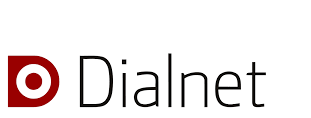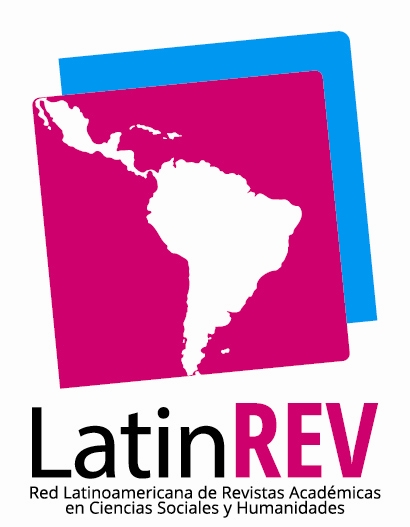Higher Education: Challenges of virtualit
Keywords:
ICT, higher education, training, investment, legislationAbstract
The authors of this paper are members of the research Project called “Challenges and opportunities of Information and Communication Technologies and Virtual Environments to foster education”that investigates about education and Information and Communication Technologies and delivers b- learning and online educational programs since 2000. Internet and the ICTs have been introduced in the classrooms of all educational levels. This has generateda lot of expectations in relation to the changes it would bring about; however, this did not happen, since it is not technology per se that creates innovation but its use and application.The purpose of this article is to reflect upon the new teaching methods: education and ICTs, Online Learning Environments and MOOCs and the challenges for the institutions and the people involved. Besides, their advantages and disadvantages and the implications of their use are analyzed. Last, strategies to enhance the potentials of ICT in education and to guarantee the standards of the programs are presented.
Downloads
References
Canavoso, A. S. (2014). “La educación a Distancia: Prejuicios y Desafíos de la Modalidad”, entrevista a Mena Marta, VEsC - A.o 5 (8) Extraído el 10 de agosto 2014. Recuperado de: http://revistas.unc.edu.ar/index.php/vesc
Cobo Romaní, C. (2010). “¿Y si las Nuevas Tecnologías no fueran la respuesta?” En Piscitelli, A., Adaime, I., & Binder, I. El proyecto Facebook y la posuniversidad: Sistemas operativos sociales y entornos abiertos de aprendizaje. Madrid: Ariel. Extraído el 15 de junio Recuperado de: http://sgpwe.izt.uam.mx/files/users/uami/hja.bak/facebook_educacion.pdf#page=152
Decker, G. (2014) “MOOCology 1.0”. En Krause, Steven D. and Lowe, Charles. Invasion of the MOOCs: The Promise and Perils of Massive Open Online Courses. Parlor Press, Anderson, South Carolina.
Head, K. (2014). “The Hidden cost of MOOC”. En Krause, Steven D. and Lowe, Charles. Invasion of the MOOCs: The Promise and Perils of Massive Open Online Courses. Parlor Press, Anderson, South Carolina.
Kolowich, S. (2013). “The Professors Who Make the MOOCs”. Extraído el 5 de julio 2014. Recuperado de: http://publicservicesalliance.org/wp-content/uploads/2013/03/The-Professors-Behind-the-MOOC-Hype-Technology-The-Chronicle-of-Higher-Education.pdf
Litwin, E. (2000) “De las tradiciones a la virtualidad” En E. Litwin (Ed). La Educación a Distancia: Temas para el Debate en una Nueva Agenda Educativa. Amorrortu Editores, Buenos Aires, 2000. pp. 156-164
Marzal Varó, A. (2014). Próxima Estación: MOOC. ReVisión, 7 (1). Extraído el 14 de agosto 2014. Recuperado de: http://www.aenui.net/ojs/index.php?journal=revision&page=article&op=viewArticle&path%5B%5D=129&path%5B%5D=232
Organización de Estados Iberoamericanos para la Educación (2013). “Expertos señalan retos de los cursos abiertos masivos en línea en Iberoamérica. Universia. México. Extraído el 26 de julio 2014. Recuperado de: http://noticias.universia.net.mx/vida-universitaria/noticia/2013/04/05/1015035/expertos-senalan-retos-cursos-abiertos-masivos-linea-iberoamerica.pdf
Poy, R., y Gonzales-Aguilar, A. (2014). “Factores de éxito de los MOOC: algunas consideraciones críticas.” RISTI-Revista Ibérica de Sistemas e Tecnologías de Información, (SPE1), 105-118.
Porter, J. (2014). “Framing Questions about MOOCs and Writing Courses”. En Krause, Steven D. and Lowe, Charles. Invasion of the MOOCs: The Promise and Perils of Massive Open Online Courses. Parlor Press, Anderson, South Carolina
Valenzuela, Ricardo. (2000). Los Tres “Autos” del Aprendizaje: Aprendizaje Estratégico en Educación a Distancia. EGE (Escuela de Graduados en Educación). TEC de Monterrey. A.o 1, N.mero 2: p.gina 1-11.
Vardi, M. Y. (2012) “Will MOOCs Destroy Academia?” ACM Digital Library, Editor’s letter, Communications of the ACM, Vol. 55 No. 11, Page 5. Extraído el 3 de julio 2014. Recuperado de: http://m.cacm.acm.org/magazines/2012/11/156587-will-moocs-destroy-academia/fulltext
Whithaus, C., y Magnotto, Neff, J. (2006). Contact and interactivity: Social constructionist pedagogy in a video-based, management writing course. Technical Communication Quarterly, 15 (4), 431-456.
Yuan, Li y Powell, Stephen (2013) MOOCs and Open Education: Implications for Higher Education A white paper, JISC CETIS Table of Contents 1. Executive Summary. Extraído el 03 de agosto 2014. Recuperado de: http://pdf.thepdfportal.com//?id=101588&nocache#
Zapata-Ros, M. (2013) “MOOCs, Una Visión Crítica y una Alternativa Complementaria: La Individualización del Aprendizaje y de la Ayuda Pedagógica”. Extraído el 13 de agosto 2014. Recuperado de: http://eprints.rclis.org/view/creators/Zapata-Ros=3AMiguel=3A=3A.html
Downloads
Published
Issue
Section
ARK
License
Copyright (c) 2015 Adriana Mallo , Graciela Bertazzi

This work is licensed under a Creative Commons Attribution 4.0 International License.






